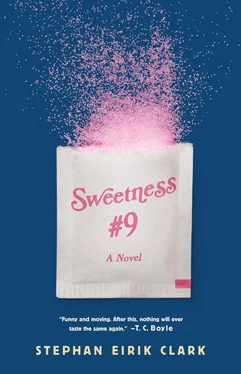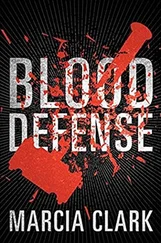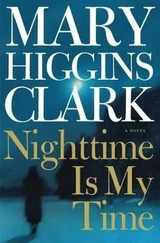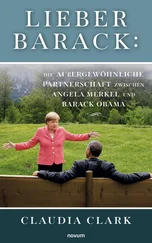Ernst sat up in bed shivering from the cold and swung his legs round to the floor. He hunched forward, his arms draped down across his thighs, and rubbed his palms together. The imagery of his dream still haunted him: Hitler had come for him down a darkened hallway, pulled by the force of a leashed Alsatian. He cornered Ernst, and then Fräulein Braun appeared to pry open his mouth and drop a capsule of cyanide inside. “Do tell me how it tastes, Ernst,” Hitler said, the only words Ernst remembered from the dream. “Do tell me how it tastes”—and then the dog’s barking had awoken him.
Ernst swallowed dryly. A brandy, that’s what he needed. Whenever he’d cried as a child, his mother had rubbed some on his lips and sung “Sonny Boy.” He lay back down and closed his eyes, eager to retreat farther into the warmth of this memory, but then he felt a hand shaking his shoulder and he sat up, banging his head into the mesh wiring of the bunk above his. A soldier stood before him, the same one he’d seen earlier with Hitler. “Come,” he said.
He had no choice, so he stepped into his slippers and threw on his robe and made his way down the concrete stairwell to the sitting room on the bottommost floor. It was there that he met Hitler’s personal secretary, Martin Bormann, the man who had reassigned Ernst to Berlin and only now saw fit to give him his orders. Bormann turned from the bar trolley when Ernst appeared and handed him a brandy.
“You are to provide the Führer with meals full of zest and mouthfeel and exuberant high notes,” he said. “Food is scarce, even here. But Our Leader”—and he pointed to the door through which Hitler slept—“cannot know. Do not ask me if we can win the war. I only know that you are to deliver flavor, regardless of what ingredients are on hand. If the cook prepares eggplant, you will make it taste like Beluga caviar. Am I understood?”
More than fifty years later, while he stood at the podium in the main ballroom of the Sheraton Newark Airport Hotel, Ernst shook his head at the memory of it.
“Understood. What was understood was ‘this is not the place for me.’”
Those of us attending the Society dinner sat before him, with the last of our chicken, beef, fish, or vegetarian going cold on our plates.
“The ventilation in that kitchen was so poor, I wished I was in a submarine choking on the diesel fumes.” He shielded his eyes against the overhead lights, looking for something behind the glare. Ten seconds passed, long enough for the silence to make a roomful of people uncomfortable, not least of all me. He’d once been such a raconteur; now I wasn’t sure what he’d say next — or if even he knew.
Koba, never one for conflict, cupped his hands around his mouth and cried out, “You’re the Gorilla of Vanilla, Ernst!”
I tapped my fork into the side of my water glass. “Hear, hear! Hear, hear!”
Then others joined in, and Ernst was holding up the flats of his hands, begging for our silence. “Please. I may not have a wooden tongue, but I’m no better than any of you. If I hadn’t made NoNilla®, someone else would have.” He spoke slowly and with an accent that hadn’t softened through the years. He pinched off the ends of certain words with a soft hiss. “Clifton perhaps.” He pointed to a contemporary of his, also a recipient of the Golden Beaker Award, and then the woman sitting next to him. “Or Vanessa there. You look lovely, Vanessa. They can tell you. Your first great work of art catches the world off-guard; the second — yourself.”
Waiters in red coats and black bow ties circled the room, collecting plates and silverware. Ernst shook his head, stuck on some thought or memory; then he noticed Eliza as she stood from her chair on the dais, and he waved her back down.
“I’m sorry,” he said. “When I get to thinking about that war, it’s as if it’s thinking of me. Just another reason to hand the company over to David. He’ll keep it in good hands.”
I was then pushing a piece of chicken across my plate, trying to sop up the butter that had rushed out when I’d cut into it. I looked to Beekley to see if I had heard this correctly — his shocked smile told me I had — then placed my knife and fork down and stood, coughing into my cloth napkin.
Everyone in the audience had turned to show me their deranged smiles.
Eliza whispered into Ernst’s ear.
“Oh, dear.” He fiddled with the flexible neck of his microphone. “Now she reminds me what I forgot to do before coming down. David, you’re taking over FlavAmerica!” The audience found this greatly amusing, but as Ernst spoke between them and me, I felt a weakness in my legs that dropped me back down to my seat. “They were playing that damn war again on the TV. I meant to tell you before we came down for drinks. They should call it the Hitler Channel. Every time I turn it on, those damned Soviets are moving through the streets to get me. I’m no Nazi, mind you. I’ve never been anything more than a flavorist. But can you imagine working under Stalin? The man was a non-taster. Wouldn’t know sweet from sour if you scraped it across his tongue.”
Eliza half stood from her chair and said something few could hear. Again, Ernst waved her down, saying, “I know, I know, I’m rambling.”
“The Gorilla of Vanilla!” Koba yelled, but this time no one joined in.
“I wasn’t about to be spirited away to the Kremlin,” Ernst said. “That’s all I mean to tell you. There’s a reason I’m standing here today.” He shook his head, silent for a moment, then seemed to regain his senses when he spotted something on the table below him. “Is that chocolate pudding?” The waiters had started moving through with dessert. “I may not have learned much in my life, but I do know you never talk over dessert.” He lifted one hand above his shoulder. “Also sprach Zarathustra.”
And with that, he turned from the podium to a spontaneous burst of applause and a few loud whistles. At my table, this show of appreciation quickly turned toward me. Koba clapped like a victorious footballer facing the crowd after a match. “Bravo,” he said. “Bravo, David. I’m so happy for you.”
Beekley cackled with delight. “You’re just another made man in New Jersey now!”
Only Tennessee was less than effusive. Showing a renewed interest in his steak — he was trying to cut a sliver of meat away from a thick vein of fat — he nodded and shook his head before setting his utensils down and offering me the smile of a stroke victim. “What can I say? You’re the best man for the job. I’m very happy for you.”
It was a parody of congratulations, and for good reason, too. I was no Fulbrighter. I wasn’t the man the International Federation of Essential Oils and Trades would soon recognize with its third-ever Distinguished Service Medal. I was a has-been flavorist, a man who was capable of paying the bills on time and little else.
“I can’t explain it,” I said with a nervous chuckle.
“What’s to explain?” And then Tennessee gave me a big smile that was more sure of itself. “Our happiness on this earth is like one of the phantom flavors I build into every one of my butterscotches. It has but one purpose: to deliver a cruel aftertaste that makes you desire more of what you no longer have.”
I was still puzzling over his meaning when his hand shot into the air and he snapped his fingers. “Waiter! Double Old Grand-Dad!” His eyes found mine. “Anything for you, David? Make it a round for the table,” he shouted. “We need to celebrate.”
I didn’t want to be rude, so when the drinks came, I lifted mine to my lips and sat at the ready as he gave a brief toast he’d learned from a family of Russian-Israeli Jews while living in Tel Aviv. “Za vas!” My stomach closed around the shot like a fist. I stood from my chair, knocking it over behind me.
Читать дальше












